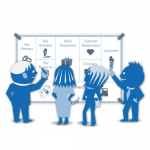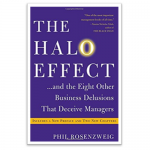The Subtle Art Of Not Giving A F*ck – A Book Review
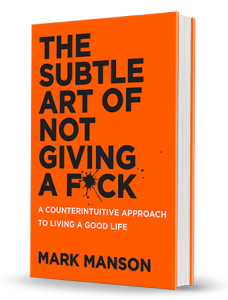 The TBK Consult blog is a business blog. Is Mark Manson’s “The Subtle Art Of Not Giving A F*ck” a business book? Should I post a review of the book on this blog?
The TBK Consult blog is a business blog. Is Mark Manson’s “The Subtle Art Of Not Giving A F*ck” a business book? Should I post a review of the book on this blog?
Reading Mark Manson’s book will help answer these questions, and I have decided that posting the review here is indeed appropriate.
The book is about the very fundamental issue of where you should use your time and energy. In your business life, that is a crucial question, too. We all have 24 hours a day, seven days a week and 365 days at our disposal. Five minutes spent here cannot be spent there.
If you lose a dollar you can potentially make another, but if you lose an hour….
Why am I spending my time writing this post?
 So let me start by explaining why I am spending my time writing this post. Why is investing an hour of my day the right thing to do compared to the thousands of other opportunities I have for spending my time?
So let me start by explaining why I am spending my time writing this post. Why is investing an hour of my day the right thing to do compared to the thousands of other opportunities I have for spending my time?
- Writing is my profession. Next to reading, writing is my favorite activity. I simply love writing. This particular post was written in Dublin Airport while waiting for my connection to Copenhagen. The people around me spend their time staring into the air, playing games on their electronic devices, checking their emails, chit-chatting with their travel companions, drinking coffee, tweeting and some are waiting in line for a visit to the toilet. I hope they are all happy (although it doesn’t look as though that is the case).
- I believe that knowing my values and objectives helps me set my priorities and live a better life. Writing this review helps me collate the content of Mark Manson’s book, ensuring that I take away something that will make me a happier man. I have to admit that I don’t like reading books and finishing them without taking something with me. Writing a review is a good way of considering what to take away.
- If you read this post, the chances are that you will want to read more of my stuff and maybe one day you’ll buy one of my books. In that case, I am getting paid for writing this post. Great business model!
- “The Subtle Art Of Not Giving A F*ck” is a great book. Writing a post about it is worthwhile.
Does the F-word worry you?
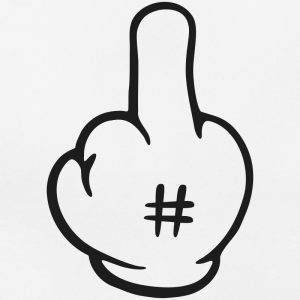 I come from a country where English is not the first language. Therefore I have no intimate relationship with the F-word. I very rarely use it, and I have no problem with others using it.
I come from a country where English is not the first language. Therefore I have no intimate relationship with the F-word. I very rarely use it, and I have no problem with others using it.
However, in the first chapter of the book, the author uses the word at least a hundred times, and that gets tiresome. It’s only in the first chapter. The language does become more readable as the story progresses. Don’t let that scare you off.
So the book is about getting your priorities right, helping you pursue the things in life that matter to you. In that respect, I find that the book does a great job. It also provides some guidance in helping you decide what is important and what is not. Making that call is, of course, more difficult, but again I find the book helpful.
Let me give you an example where I have experienced people wasting their time on things that cannot possibly enrich their lives.
I am an avid user of LinkedIn. Lately – and especially during the recent US presidential election – I have seen people writing posts and comments about what is not appropriate content for LinkedIn. These are guys like you and me (meaning having no ownership to the platform or representing anything other than an opinion) that suddenly feel entitled to police what’s posted on LinkedIn. Instead of ignoring a post and carrying on with life, they invest time and energy in commenting that this post doesn’t belong on LinkedIn, but should be posted on Facebook instead. The entertaining thing is that by commenting on the post (they dislike) they are now helping to spread the post to an even wider audience, thus amplifying the content that they felt was inappropriate. LinkedIn does offer facilities for hiding a post, for un-following posts from any of your connections and for reporting posts as inappropriate (with many options for classifying the kind of offence committed). If you cannot ignore a piece of content that you feel inappropriate, then why not do something about it that doesn’t label you as a busy-body and is a waste of your precious time.
Don’t lose twice
Spending time correcting other people’s behavior in areas that objectively have no impact on your life is a waste of time. Reflecting on other people’s appearances that again have no impact on your life is a waste of time. That is what a lot of people choose to do. Let them do that, but should you know better?
You only have limited impact on the world around you, but you do have substantial impact on how you choose to react. Save your energy for the important stuff.
I travel a lot and sometimes a flight is delayed or even canceled. Sometimes I am sitting next to a very talkative person, while I want to write an article. Sometimes my luggage doesn’t show up on the conveyer belt upon my arrival. Sometimes the rental car has a problem. Sometimes the hotel hasn’t got my booking. Sometimes shit happens.
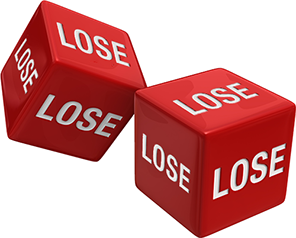 I have seen people go completely berserk when their carefully planned itinerary suddenly meets an unexpected event. Sometimes you do have to push hard for the car rental company to give you an upgrade or for the hotel to give you the presidential suite, but I have never experienced that yelling at people and behaving like a spoiled child brings you any benefits.
I have seen people go completely berserk when their carefully planned itinerary suddenly meets an unexpected event. Sometimes you do have to push hard for the car rental company to give you an upgrade or for the hotel to give you the presidential suite, but I have never experienced that yelling at people and behaving like a spoiled child brings you any benefits.
Rather you lose twice.
The flight is canceled. Is there an alternative? Yes = go for it! No = accept it and rearrange your schedule. There is never anything so bad that it isn’t good for something.
There are people facing more difficult things in life than a canceled flight, a talkative person or a problem with a rental car. Adjust to the new reality and get the best out of it. Smile and be humble. Enjoy life.
A life changing moment
I must admit that I read the book at a life changing moment. I recently went through some minor surgery. Everything went well, but only the post-surgery analysis of the tissue removed would tell if I was cured or condemned to further surgery and treatment. The analysis took two full weeks, and during this period of waiting, I read the book. When you look death in the eye, everything around you takes on a new perspective.
I am now cured, and my life expectancy is back to normal, but thanks to the book I made some assessments as to what is important and what is not. I did the same a little over ten years ago when I was mugged by three big guys on a Sunday afternoon in a small and narrow street in Madrid. Although I was knocked unconscious, I did survive the attack and during the days that followed I took an inventory of my life and made some adjustments.
Making adjustments to your values and priorities comes much easier when you face death, but I do not wish for anyone to go through such types of wake-up calls. Books such as this one can help you take a helicopter perspective on your life and guide you in identifying your core values and your most important priorities. That is the premise for deciding what is worth giving a f*ck for in the future – excuse my French.





